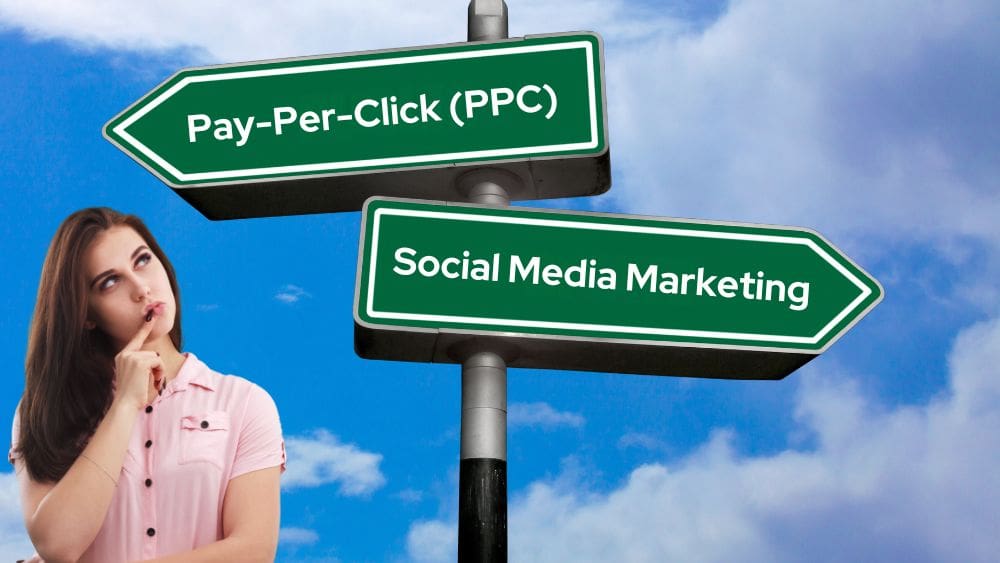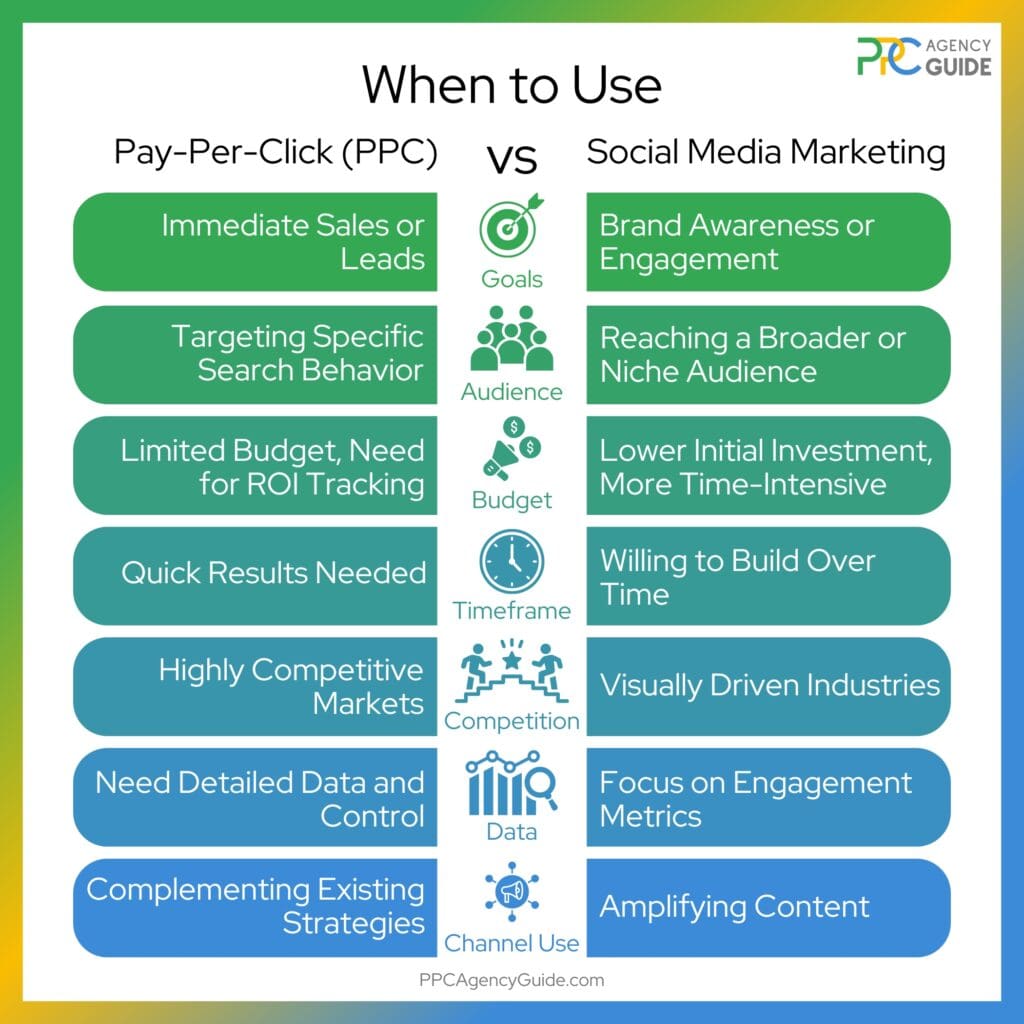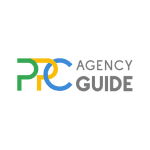
The pay-per-click (PPC) vs. social media marketing debate is as old as the strategies themselves, yet the question persists: which one delivers the best bang for your buck? With businesses constantly vying for online attention, choosing the right approach could make or break your digital marketing success. In this article, we’ll break down the strengths, challenges, and key differences of each strategy so it’s easier for you to decide where to invest your marketing dollars for maximum impact.
PPC: The Basics Explained
PPC is an online advertising model where you pay each time someone clicks on your ad. It’s a bit like renting a billboard on the internet, except you only pay when someone stops and engages. The most common platforms for PPC are Google Ads and Microsoft Advertising, which allow your ads to show up in search engine results when someone types in keywords related to your business.
How PPC Works
Let’s say you own a bakery in New York and want more local customers. With PPC, you can create ads that show up when people search for “best cupcakes near me” or “birthday cakes in NYC.” When someone clicks on your ad, you pay a small fee, usually just a few dollars, with the goal of converting that click into a customer.
Benefits of PPC
- Immediate Results: Unlike search engine optimization (SEO), which can take months to show results, PPC delivers almost instant visibility. This is perfect if you’re launching a product or need to boost sales fast.
- Highly Targeted Traffic: PPC lets you target ads based on keywords, location, time of day, device type, and more, ensuring that you’re reaching the right audience at the right time.
- Measurable ROI: One of PPC’s biggest strengths is its measurability. You can track clicks, conversions, and costs to see exactly how much each sale costs you. For instance, businesses make an average of $2 in revenue for every $1 spent on Google Ads, the platform reports.
What to Keep in Mind
- Ongoing Optimization: PPC isn’t a set-it-and-forget-it strategy. To get the best results, you’ll need to continuously monitor and adjust your campaigns. This includes refining keywords, testing ad copy, and optimizing landing pages.
- Budget Considerations: PPC can be cost-effective, but it requires careful budget management. Costs can add up if campaigns aren’t properly optimized, so it’s crucial to keep an eye on your spending.
Social Media Marketing: The Basics Explained
Social media marketing involves using platforms like Facebook, Instagram, LinkedIn, X (formerly known as Twitter), TikTok, and others to promote your business, connect with your audience, and build your brand. Unlike PPC, where you pay for each click, social media marketing often focuses on organic (unpaid) posts and engagement, though it also includes paid advertising options.

How Social Media Marketing Works
Think of it as building a community around your brand. You create content—posts, stories, videos, or ads—that engages your audience. This could be anything from sharing behind-the-scenes glimpses of your business to running promotions and engaging directly with customers through comments and messages.
For example, if you own a fitness studio, you might use Instagram to post-workout tips, client success stories, or live-stream classes. These posts build your brand identity and keep your business top-of-mind for your followers.
Advantages of Social Media Marketing
- Brand Awareness: On average, businesses say social media increases brand awareness by 95 percent, per Small Business Trends. Social media is one of the best ways to get your brand in front of a large audience. For instance, Facebook has nearly 3 billion active users, according to Statista. Platforms like Instagram and TikTok also have massive reach, especially among younger audiences.
- Customer Engagement: Social media lets you interact directly with your customers, answer questions, and build relationships. It’s a two-way street where customers can give feedback and feel connected to your brand.
- Cost-Effective Advertising: Organic posts are free, and even paid ads on social media tend to be less expensive than traditional advertising. You can start small, test what works, and scale up.
What to Keep in Mind
- Content Consistency: To keep your audience engaged, you need to post consistently. This doesn’t just mean frequent posting but also maintaining a brand voice and delivering value through your content.
- Algorithm Changes: Social media platforms often change their algorithms, which can affect your reach. For example, organic reach on Facebook has declined over the years, making it harder for businesses to connect with their followers without investing in ads.
- Time-Intensive: Managing social media accounts takes time and creativity. You need to create content, respond to comments, and keep up with trends. It’s often a full-time job, which is why many businesses hire social media managers or agencies.
Social Media Marketing vs. Social Media Advertising
Although the terms “social media marketing” and “social media advertising” are often used interchangeably, they refer to different strategies. Let’s review some key differences.
Social Media Marketing
- Focuses on Organic Content: Regular posts, engaging stories, live videos, and community interaction.
- Builds Brand Awareness and Loyalty: You’re not just selling; you’re creating a brand personality and a loyal following.
- Long-term Strategy: Results build over time as you increase your audience and engagement.
Social Media Advertising
- Pay to Play: You pay to get your content in front of a wider, more targeted audience than organic reach typically allows.
- Highly Targeted: Ads can be aimed at specific audiences based on age, location, interests, and behaviors, making them incredibly precise.
- Quick Results: Ads can drive immediate traffic, sales, or sign-ups, especially when paired with compelling calls to action.
PPC vs. Social Media Advertising
PPC and social media advertising have much in common, too. In fact, some social media advertising leverages the PPC model. Let’s take a quick look at some differentiators.
PPC
PPC is primarily about search engine advertising, most commonly on platforms like Google Ads and Microsoft Advertising. You bid on keywords, and your ads appear when people search for those terms. You pay each time someone clicks on your ad. Some key points about PPC include:
- Search Intent: PPC targets users actively searching for specific products or services, which often means they’re further along in the buying process.
- Highly Measurable: PPC campaigns are data-driven, with clear metrics on clicks, costs, and conversions, allowing for precise ROI calculations.
- Fast Results: Ads go live almost immediately, driving traffic quickly to your website.
Social Media Advertising
Social Media Advertising involves paid ads on platforms like Facebook, Instagram, LinkedIn, and TikTok. These ads appear in users’ feeds, stories, or as sponsored posts and are designed to reach a specific target audience based on demographics, interests, and behaviors. Some key points about social media advertising include:
- Audience Targeting: Social media ads allow for hyper-specific targeting based on interests, behaviors, and demographic data, making them great for reaching specific customer segments.
- Visual Engagement: Social ads are highly visual and interactive, often featuring images, videos, carousels, or even playable mini-games, making them great for capturing attention.
- Awareness and Engagement: They’re ideal for brand building, storytelling, and driving engagement, even if the audience isn’t actively searching for your product.
Key Distinctions of PPC and Social Media Marketing
Now that we’ve defined both and covered the basics, let’s take a look at what sets PPC and social media marketing apart.
Audience Intent
PPC Targets users with high intent—people actively searching for specific products or services. Think of it as catching customers when they’re already on the hunt, like when someone Googles “best accounting software for small businesses.” These users are often closer to making a purchase decision.
Social media marketing focuses on building relationships and engaging with audiences who may not be actively searching for your products. It’s about creating brand awareness and nurturing long-term loyalty, like sharing behind-the-scenes content or stories that resonate with your audience.
Platform Differences
PPC primarily runs on search engines like Google and Bing, displaying ads directly in search results or on related partner websites. It’s all about keywords, bidding, and search algorithms.
Social Media marketing takes place on platforms like Facebook, Instagram, LinkedIn, TikTok, and X. It involves sharing content like posts, videos, and stories and interacting with followers through comments and messages. It’s less about search and more about social interaction.
Ad vs. Organic Content
With PPC, you’re paying for ad placement every time someone clicks. No clicks, no cost. This makes it easy to control budgets and directly link ad spend to performance metrics like conversions or sales.
Social media marketing is predominantly organic, relying on free content to engage followers. While there are paid ad options, much of the effort is about growing your audience organically through consistent posting and engagement.
Cost Structure
PPC costs are directly tied to clicks, with varying prices based on keyword competition. Highly competitive keywords can get expensive, especially in industries like finance or law.
With social media marketing, organic content is free, but paid ads are charged based on impressions, clicks, or engagement. Even without ad spend, there’s a time cost—creating content, posting regularly, and managing interactions can be resource-intensive.
Time to See Results
PPC is nearly instant. Once your ads are live, you can start seeing traffic immediately, making it ideal for short-term promotions, product launches, or quick boosts in sales.
Social media marketing is generally slower to build traction. You’re investing in long-term relationships and community building, which means results can take time to manifest. It’s about creating a loyal following rather than instant wins.
Data and Analytics
PPC offers precise, detailed analytics on every aspect of your campaign—clicks, conversions, cost per acquisition (CPA), and ROI. This level of data helps you optimize performance in real-time.
Social media marketing metrics like likes, shares, and comments are helpful, but they’re often more qualitative than quantitative. Analytics are more about engagement and sentiment, providing a broader look at how your brand is perceived.
Creative Flexibility
PPC is generally limited to text ads or basic visuals, especially in search ads. It’s more about messaging and keyword relevance than eye-catching design.
Social media marketing is highly creative, leveraging visuals, videos, stories, and even interactive content like polls and live streams. This makes it ideal for brands that want to showcase personality, creativity, and storytelling.
PPC vs. Social Media Marketing: Choosing the Right Strategy for Your Business
Choosing between PPC and Social Media Marketing depends on your business goals, target audience, budget, and how quickly you need results. Let’s explore some key considerations to help you decide.
Define Your Business Goals
- If Your Goal is Immediate Sales or Leads: PPC is usually the better choice because it captures high-intent users actively searching for your product or service. For example, an e-commerce site looking to boost holiday sales would benefit from PPC to quickly drive traffic and conversions.

- If Your Goal is Brand Awareness or Engagement: Social Media Marketing excels at building brand recognition and fostering a loyal community. If you’re launching a new product or trying to grow your audience, social media offers the storytelling and interaction tools you need to connect on a personal level.
Consider Your Audience
- Targeting Specific Search Behavior: If your ideal customers are actively searching for your services—think lawyers, dentists, or local service providers—PPC is great for capturing them when they’re ready to act. For instance, a local HVAC company might find PPC essential for reaching customers who need repairs now.
- Reaching a Broader or Niche Audience: Social Media Marketing shines when you’re trying to reach a specific demographic or interest group, like millennials on Instagram or professionals on LinkedIn. It’s also great for targeting niche audiences with content that resonates with their lifestyle or values.
Budget and Resource Allocation
- Limited Budget, Need for ROI Tracking: PPC can be more predictable in terms of budget because you only pay for clicks. It’s easy to track ROI, making it a good choice if you need to see a clear link between your spending and results.
- Lower Initial Investment, More Time-Intensive: Social Media Marketing can be less costly upfront but requires consistent time investment for content creation, posting, and community management. If you’re a small business with a limited budget but time to invest, organic social media can offer a lot of value.
Time to Results
- Quick Results Needed: If you’re launching a new campaign and need immediate traffic, PPC is the way to go. Ads can go live quickly, and you can start driving traffic within hours, making it ideal for urgent needs.
- Willing to Build Over Time: If you’re in it for the long game and want to build brand loyalty and awareness, social media’s slower but steadier pace might be more aligned with your goals. It’s about nurturing relationships that can lead to future sales.
Industry and Competition
- Highly Competitive Markets: In industries where keywords are highly competitive and costly, such as insurance or legal services, PPC might be expensive, requiring a significant budget to stay competitive. Social media can be a less costly way to maintain a presence while gradually building up trust.
- Visually Driven Industries: For businesses where visuals are key—fashion, food, fitness—social media marketing offers creative avenues that PPC cannot. Instagram, TikTok, and Pinterest are especially effective for these kinds of brands, helping you showcase your products in dynamic, engaging ways.
Data and Analytics Needs
- Need Detailed Data and Control: PPC provides robust data and control over campaigns, allowing for quick adjustments based on performance. If you thrive on analytics and want to fine-tune your strategy based on real-time feedback, PPC’s data-driven nature is a big advantage.
- Focus on Engagement Metrics: Social media metrics like likes, shares, comments, and follower growth can give a more holistic view of how your audience feels about your brand. If you value engagement and sentiment, this approach can offer deeper insights into brand perception.
Existing Marketing Channels
- Complementing Existing Strategies: If you already have strong SEO efforts, PPC can complement by capturing paid clicks alongside organic search results, maximizing your search engine real estate.
- Amplifying Content: If content marketing is a big part of your strategy, social media marketing can amplify your blog posts, videos, and other content, driving organic traffic and engagement without direct ad spend.
Integrating PPC and Social Media for Maximum Impact
Combining PPC and Social Media Marketing can amplify your overall marketing efforts, driving both immediate results and long-term brand growth. Here’s how you can effectively integrate these two strategies.
Create a Multi-Channel Funnel
- Capture and Nurture Leads: Use PPC to capture high-intent traffic from search engines, then retarget those visitors with social media ads to keep your brand top-of-mind. For example, a user clicks on your PPC ad and visits your site but doesn’t make a purchase. Retarget them on Facebook or Instagram with ads showcasing testimonials or special offers, nudging them closer to conversion.
- Cross-Promote Content: Use social media to promote content that aligns with your PPC keywords. If you’re running a PPC campaign around “small business accounting tips,” share relevant blog posts or videos on LinkedIn or Facebook to reinforce your message and drive organic traffic.
Use Social Media Insights to Inform PPC
- Leverage Audience Data: Social media platforms offer deep insights into audience demographics, interests, and behaviors. Use this data to refine your PPC targeting. For instance, if your Facebook audience engages heavily with posts about sustainability, consider adjusting your PPC copy to highlight eco-friendly aspects of your product or service.
- Test Creative on Social Media First: Social media is a great testing ground for your ad creatives. Try different headlines, images, or video styles organically, and use the best-performing content in your PPC campaigns. This way, you’re investing in PPC with proven creatives, increasing the likelihood of success.
Align Messaging Across Channels
- Consistent Branding and Messaging: Ensure your PPC ads and social media posts share a consistent tone, message, and visual style. A unified approach reinforces your brand and makes your campaigns feel cohesive rather than disjointed. For instance, if your PPC ad highlights a “30% off summer sale,” ensure your social media is also promoting this event with similar imagery and messaging.
- Complementary Calls to Action (CTAs): Use complementary CTAs to guide your audience through the funnel. Your PPC ad might drive traffic to a landing page, while your social media posts encourage them to sign up for your newsletter or follow your page, building long-term engagement.
Retargeting and Remarketing Synergies
- PPC Retargeting on Social Media: When someone clicks on your PPC ad but doesn’t convert, use social media ads to re-engage them. Facebook and Instagram retargeting ads can serve as friendly reminders, showcasing new offers, customer reviews, or highlighting the benefits they missed on their first visit.
- Social Media Engagement Feeds PPC: Users who engage with your content on social media can be retargeted with PPC ads later, especially if you’re building brand awareness and want to move them further down the sales funnel. This approach keeps your brand present throughout their buying journey.
Utilize PPC for Time-Sensitive Offers and Social for Brand Storytelling
- PPC for Urgent Campaigns: Use PPC to promote limited-time offers, flash sales, or seasonal promotions where immediacy is key. The quick turnaround of PPC is perfect for driving traffic when timing matters.
- Social Media for Storytelling: Use social media to share the “why” behind your brand, humanize your business, and build a community. This storytelling aspect creates a deeper connection that makes your audience more likely to convert when they encounter your PPC ads.
Measure and Adjust Holistically
- Unified Analytics: Track your PPC and social media results together to see how they contribute to your overall marketing goals. Google Analytics, for example, can help you view multi-channel attribution, showing how different touchpoints—from PPC clicks to social media interactions—play into a customer’s journey.
- Optimize Based on Cross-Channel Insights: Use the performance data from both platforms to refine your campaigns. If you see that social media is driving strong top-of-funnel engagement, consider allocating more budget to PPC retargeting for mid- to bottom-of-funnel conversions.
Get Help Maximizing Your PPC Results
Building a successful strategy that seamlessly integrates PPC and social media Marketing requires expertise, ongoing optimization, and a keen understanding of audience behavior across platforms. Working with an experienced PPC agency ensures you have the right strategy in place, backed by data-driven insights and creative execution, to maximize your results and ROI. If you’re ready to take your campaigns to the next level, request a complimentary consultation.
PPC vs. Social Media Marketing FAQs
How do you integrate PPC and social media marketing for better results?
Integrate PPC and social media by using PPC to capture high-intent traffic and social media for retargeting and brand engagement. Sync messaging and creatives across platforms to maintain a consistent brand voice. Use social data to refine PPC targeting, and leverage PPC data to inform social ad strategies for a cohesive, multi-channel approach.
Is PPC or social media marketing more effective for my business?
It depends on your goals. PPC is ideal for immediate sales or leads from users actively searching for your products. Social media marketing excels at building brand awareness, engaging with your audience, and nurturing long-term relationships. Often, the best results come from using both strategies together to capture and engage your target market.
What are the key differences between PPC and social media advertising?
PPC targets high-intent searchers looking for specific products or services and charges per click. It’s great for driving immediate action. Social media advertising, on the other hand, focuses on engaging users based on their interests and behaviors, building brand awareness and community. Social ads are often more visually engaging, while PPC is more data-driven.
How can a PPC agency help maximize my marketing strategy?
A PPC agency brings expertise in managing campaigns, optimizing keywords, and crafting compelling ad copy that drives results. They can help you create a cohesive strategy that integrates with other marketing channels, continuously optimize your ads based on data insights, and provide ongoing support to ensure you’re getting the best possible return on your ad spend.
What are the benefits of using both PPC and social media marketing?
Using both PPC and social media marketing allows you to capture immediate demand while building long-term brand awareness. PPC targets users actively searching for your services, driving quick conversions. Social media engages potential customers, nurtures relationships, and creates brand loyalty, setting the stage for future conversions and repeat business.
How does PPC retargeting work with social media ads?
PPC retargeting captures users who click on your PPC ads but don’t convert. You can then use social media ads to re-engage those visitors, reminding them of your products or services. This multi-channel approach keeps your brand top-of-mind, increases conversion rates, and encourages users to return to your site and complete their purchase.
Which is better for brand awareness: PPC or social media marketing?
Social media marketing is generally better for brand awareness because it allows you to engage directly with your audience, share content, and tell your brand’s story. It’s designed for community building and visual storytelling. While PPC can also drive awareness, it’s more targeted toward immediate action and conversions rather than long-term engagement.
How do I choose between PPC and social media marketing?
Choose based on your business goals, budget, and audience. If you need immediate sales or leads, PPC is your best bet. For building brand awareness, engaging with your audience, and nurturing relationships, social media marketing is ideal. Many businesses benefit from using a combination of both for a balanced marketing strategy.
What strategies can improve the ROI of PPC and social media campaigns?
To improve ROI, use data-driven insights to refine targeting and ad creatives. Test and optimize your PPC keywords and bids regularly, and use social media insights to adjust your content strategy. Retargeting, A/B testing, and aligning your messaging across both platforms can enhance performance and maximize your marketing investment.


















